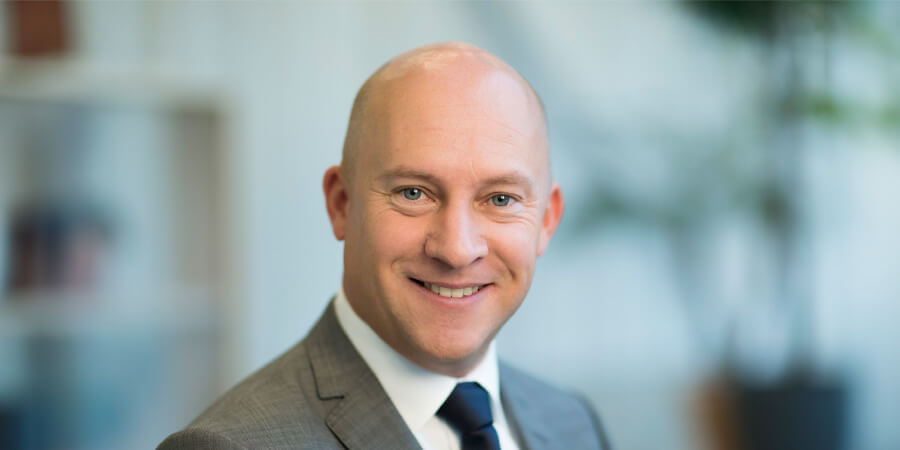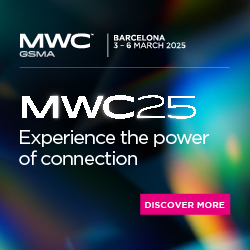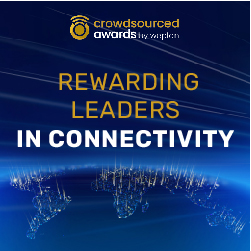As Africa’s telecom industry undergoes rapid transformation, driven by technological advancements and the growing demand for connectivity, Patrick Johansson, President of Ericsson Middle East and Africa, shares his perspective on the region's evolving ICT landscape. In this exclusive interview, Johansson discusses the key drivers of growth, the challenges and opportunities surrounding 5G adoption, and Ericsson's efforts to address sustainability and the skills gap. He also highlights the company's successes in the Middle East and Africa and how its deep commitment to the region is shaping its strategic vision for the future.
How do you perceive the current state of the ICT and telecom industry in Africa, and what are the key factors driving its growth?
Africa’s communications sector has transformed remarkably over the past two decades, with rapid ICT infrastructure expansion, including mobile networks, internet connectivity, and increasing 5G activity. Affordable internet access through 3G, 4G, and emerging 5G networks has become widespread, and mobile phone adoption has surged, even in remote areas.
GSMA Intelligence projects that Sub-Saharan Africa will see smartphone adoption rise to 88% by 2030. Additionally, the Ericsson Mobility Report (June 2024) forecasts 5G subscriptions in Sub-Saharan Africa will reach over 320 million by 2029, making up 28% of the region's mobile users.
Fixed Wireless Access (FWA) plays a growing rol in addressing Africa's broadband needs. 4G FWA serves as an initial step; together with our customer and the Ministry of National Education in Senegal, we implemented a digital education ecosystem in five schools using FWA. Now in the continent, we also see the potential of 5G is evident in its ability to provide fiber-like speeds. Notably, several African markets, including Angola, South Africa, Nigeria, and Zimbabwe, have already begun offering 5G FWA services. According to the latest ConsumerLab FWA survey conducted within Nigeria, representing 10 million households, three out of five households are now using FWA as the primary connectivity. Also, three in five of the interested households are prepared to increase their monthly connectivity payment to get 5G FWA. These are strong indications of adoption, though we still need to improve household awareness of FWA.
Furthermore, mobile payment systems have also flourished, enabling millions to access financial and communication services. Driving these advancements are regulatory reforms encouraging investment and competition in the telecom sector, alongside industry-led initiatives leveraging AI-powered tools across diverse applications, further fueling the continent’s digital evolution.
What are the main challenges and opportunities associated with the adoption and growth of 5G technology in Africa?
The lack of adequate ICT infrastructure, especially in rural areas, and intermittent power supply are key challenges across Africa. At Ericsson, we are committed to addressing these issues through infrastructure upgrades and energy-efficient solutions. Adopting 5G technology is crucial for reducing energy costs, which we tackle by modernizing hardware and implementing energy-saving software. For example, Ericsson’s triple-band Radio 4485 reduces the embodied carbon footprint by 50% compared to the baseline of a dual-band Radio 4480 and a single-band Radio 4415.
Another critical challenge is spectrum availability and affordability, as well as the high cost of 5G-enabled devices. In many cases, the cost of spectrum licenses and the lack of a clear allocation framework often delay network rollouts. Similarly, the price of 5G devices often limits accessibility for consumers in developing markets. The success of 5G deployment depends not only on allocating new mid-band spectrum but also on how it's distributed to CSPs. Since 5G supports 100MHz carriers in the mid-band, it's crucial to allocate spectrum in 100MHz blocks. This ensures optimal use of 5G radio equipment, cost-effective infrastructure, and better performance.
By supporting communication service providers in spectrum repurposing, we aim to extend 5G access across the continent, bridging the digital divide and fostering sustainable development. However, for true 5G experiences and benefits, additional spectrum is needed.
In our ‘On the Road to Breaking the Energy Curve’ report, Ericsson offers updated advice to communications service providers (CSPs) about how they can become more energy-efficient, sustainable, and cost-effective as they scale up 5G–while also achieving their business goals and sustainability targets.
Addressing sustainability and the skills gap are crucial for the telecom industry’s future. What initiatives is Ericsson undertaking to tackle these challenges in the region?
At Ericsson, we believe ICT can empower industries to transition to a low-carbon economy. Ericsson research shows that while ICT accounts for just 1.4% of global emissions, it could reduce industrial emissions worldwide by up to 15%. Emerging technologies like 5G, AI, and IoT play a critical role in enabling decarbonization.
We help CSPs cut greenhouse gas emissions across value chains through solutions like intelligent RAN energy-saving software, which reduces energy consumption, and our triple-band, tri-sector 5G radio technology, which merges the functionality of nine radios to lower emissions and energy use. Our approach considers the entire network ecosystem, emphasizing intelligent product design with responsible materials, minimized waste, and a comprehensive product take-back service for secure recycling.
In Africa, as digital literacy becomes essential, Ericsson partnered with the United Nations Children’s Fund (UNICEF) in 2020 and was the first private sector partner to make a multimillion-dollar commitment to Giga. The Giga initiative—a partnership between UNICEF and the International Telecommunication Union (ITU)—aims to connect every school in the world to the internet by 2030 to help bridge the digital divide. We are also a leading private sector partner in the Digital Transformation Collaborative led by UNESCO, advising governments on the digital transformation of education. To advance our efforts in this space, we launched our flagship digital education program ‘Connect to Learn’ in 2010 and this initiative has provided digital skills to 485,000 students across 43 countries.
To further digital skills, we extended our global program, Ericsson Educate, to the Smart Africa Digital Academy (SADA) to train 100 policymakers from 19 countries, and we also launched the Ericsson Gen-E Graduate Engineer Program for Market Area Middle East and Africa, equipping engineering graduates with essential technical skills.
Could you highlight some of Ericsson's key successes in the Middle East and Africa and explain how the company’s commitment to the region is shaping its strategic direction?
At Ericsson, we are dedicated to building a digitally transformed world that fosters sustainable development and equal opportunity. With over 100 years of connecting Africa, we’ve advanced every generation of wireless networks, from 1G to 5G. This year, we completed Egypt’s first 5G trial with Telecom Egypt in the New Administrative Capital.
A notable achievement is the deployment of Radio 6626, which reduces power consumption by up to 50% and lightens tower loads. Launched in 2022, this technology has supported 4G expansion and accelerated 5G readiness across over 20 African countries.
To bridge the digital divide, Ericsson focuses on rural connectivity through solar-powered solutions that extend network reach, lower energy consumption, and streamline installation in remote areas. Through our Mobile Financial Services, we promote financial inclusion, supporting over 114 million active users worldwide, half of which are in Africa, and processing more than 36 billion transactions annually worth over USD 501 billion. This approach, particularly impactful in Africa, supports underserved communities and empowers local economies by providing essential access to financial services. Our collaboration with MTN in 16 African markets recently earned the Glotel Award for Mobile Financial Services Mastery, underscoring our commitment to inclusive connectivity and financial empowerment.
Looking ahead, Ericsson will continue to drive affordable broadband access for over a billion people, empowering them to fully engage in the digital economy and helping advance the UN Sustainable Development Goals (SDGs).








